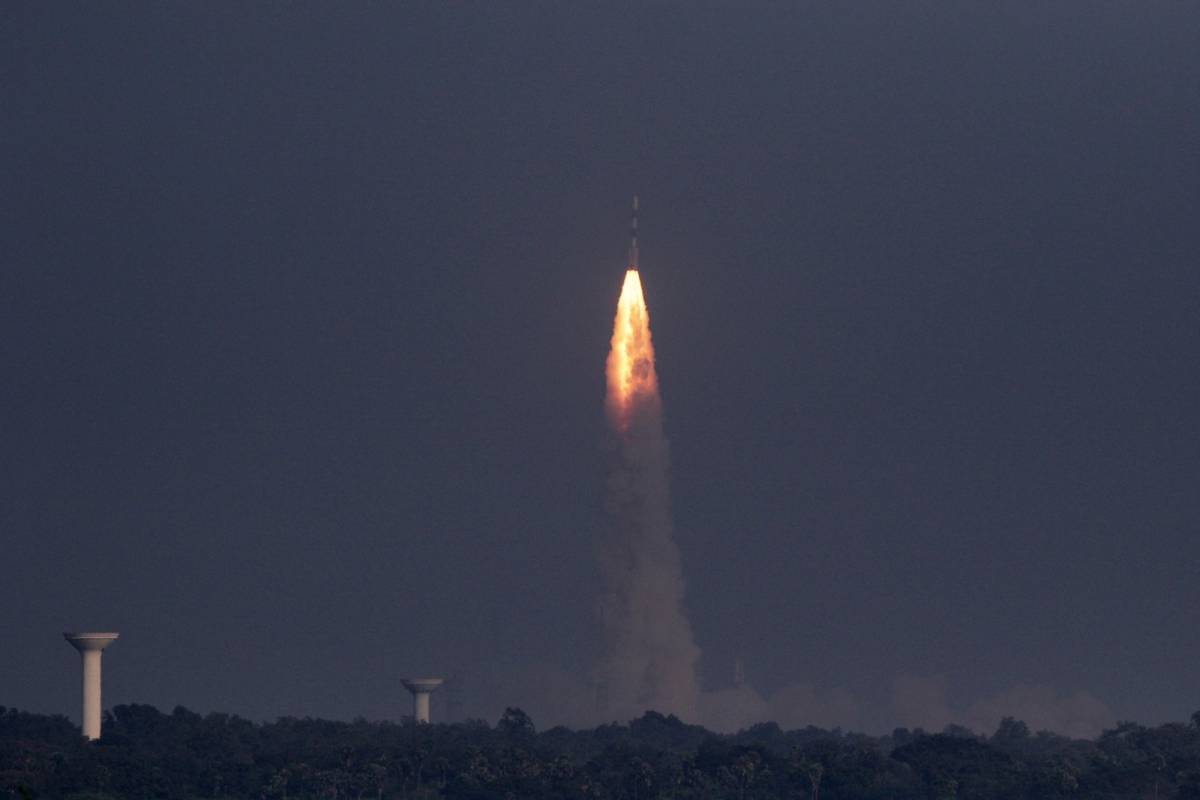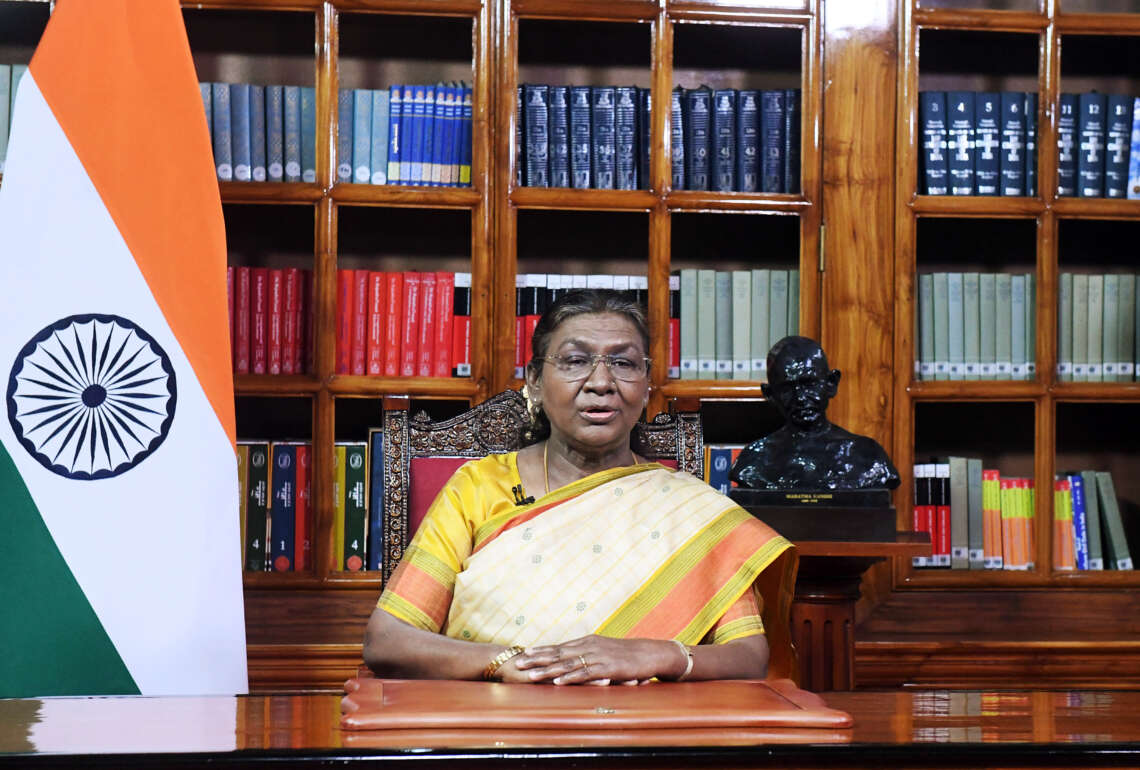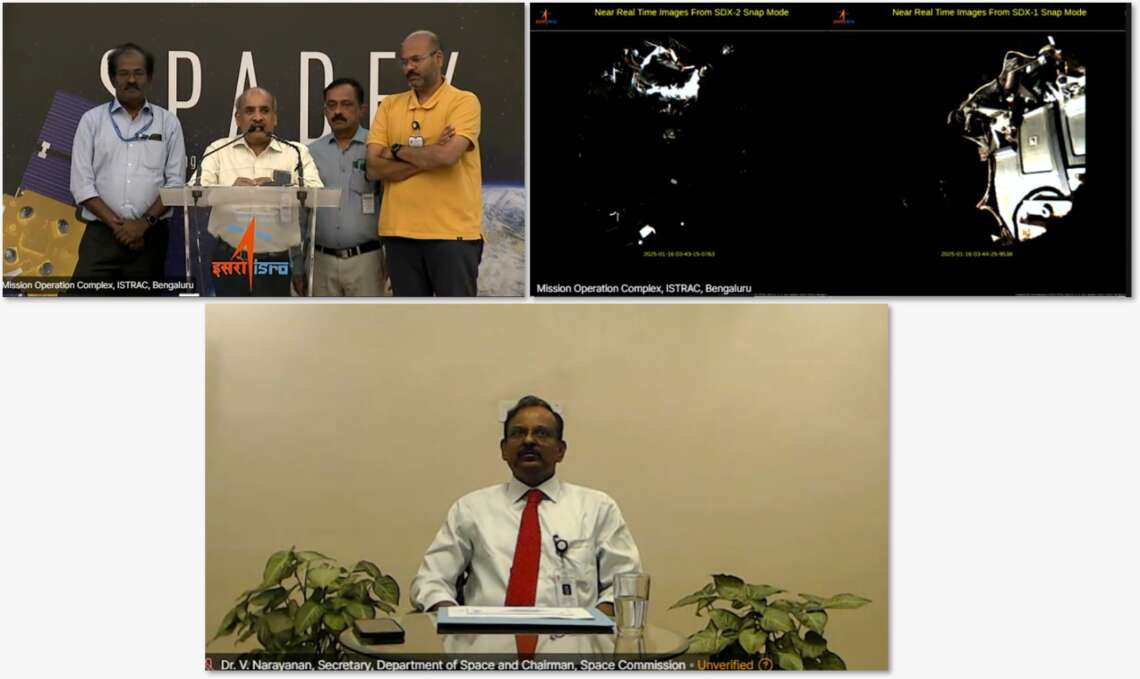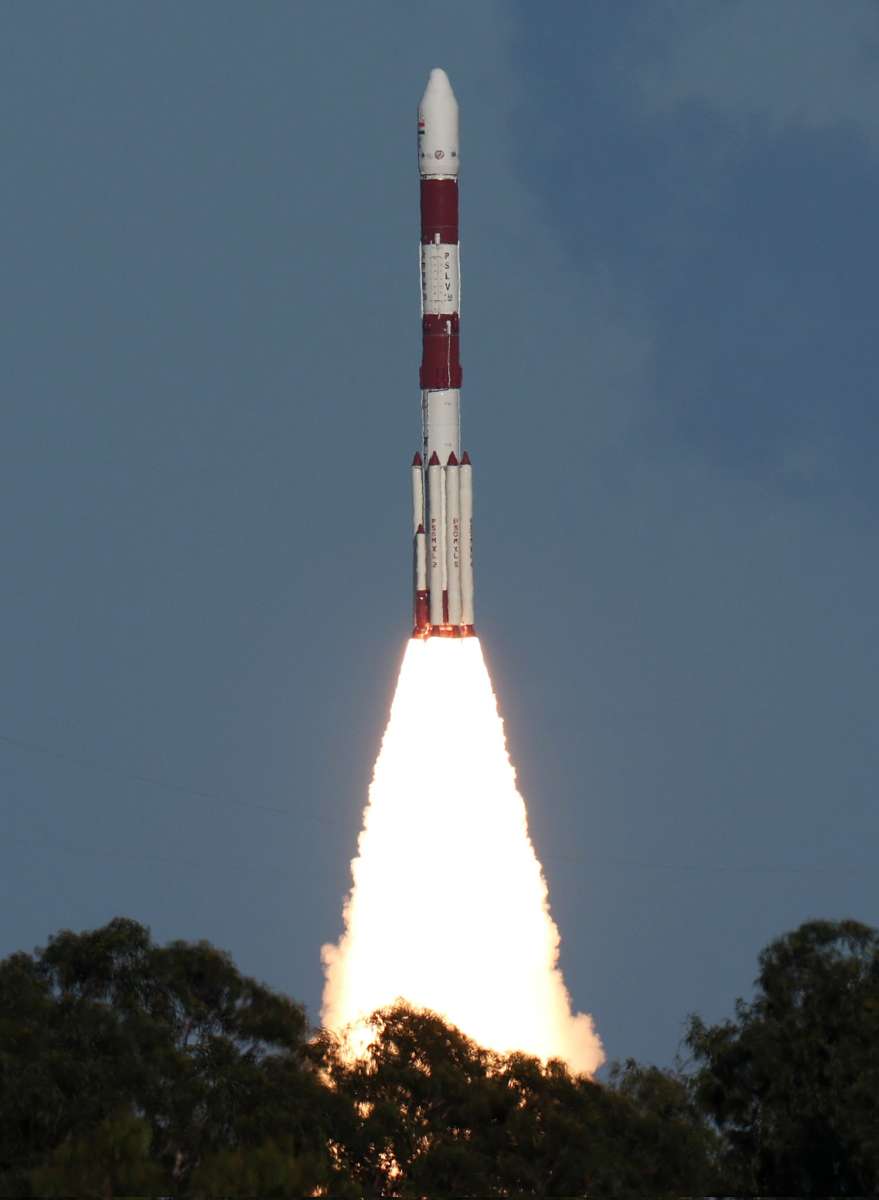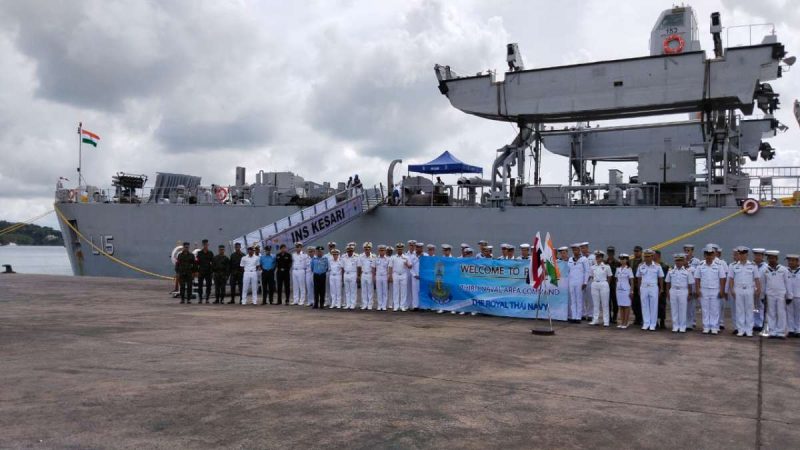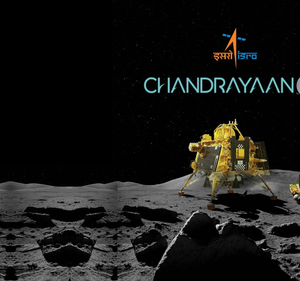The rocket that would fly on Monday is the XL-variant of PSLV also having six booster motors but with an increased fuel capacity of 12 ton…reports Asian Lite News
The Indian space agency on early Sunday morning began the countdown for the Monday morning launch of its PSLV-C52 rocket carrying the country’s radar imaging satellite RISAT-1A renamed as Earth Observation Satellite (EOS-04).
Piggybacking on EOS-04 in the Polar Satellite Launch Vehicle (PSLV) are two small satellites – INSPIREsat-1 and INS-2TD.
The 44.4 metre tall and weighing 321 ton PSLV rocket is scheduled to blast off from the first launch pad at India’s rocket port in Sriharikota in Andhra Pradesh at 5.59 a.m. on Monday.
The PSLV is a four stage/engine rocket powered by solid (first and third stages) and liquid (second and fourth stages) fuels alternatively. The rocket also has six booster motors with nine ton fuel hugging the first stage.
The rocket that would fly on Monday is the XL-variant of PSLV also having six booster motors but with an increased fuel capacity of 12 ton.
During the countdown the rocket will be filled with liquid fuel and all its systems will be checked.
On Monday just over 17 minutes into its flight the PSLV-C52 will sling the 1,710 kg EOS-04 into sun synchronous polar orbit of 529 km and it will be followed by INSPIREsat-1 (17.5 kg) and INS-2TD (8.1 kg) satellites.
The whole satellite launch mission will be over in about 18.78 minutes.
India’s radar imaging satellite EOS-04 is designed to provide high quality images under all weather conditions for applications such as agriculture, forestry & plantations, soil moisture & hydrology and flood mapping.
The EOS-04 with a mission Alife of 10 years is a repeat microwave remote sensing satellite of Risat-1 and is configured to ensure continuity of SAR in C-Band providing microwave data to the user community for operational services.
The satellite will play a strategic role in the nation’s defence with its capability to operate in day, night and all weather conditions with a mission life of five years.
The satellite has high data handling systems and high storage devices among other things.
The INSPIREsat-1 is a student satellite from Indian Institute of Space Science & Technology (11ST) in association with Laboratory of Atmospheric & Space Physics at University of Colorado, USA. The other contributors are NTU, Singapore and NCU, Taiwan.
The satellite carries two scientific payloads to improve the understanding of ionosphere dynamics and the sun’s coronal heating process.
The technology demonstrator satellite (INS-2TD) from ISRO, which is a precursor to India-Bhutan Joint Satellite (INS-2B) carries a thermal imaging camera to assess land/water surface temperature of wetlands/lakes, delineation of vegetation (crops/forests) and day/night thermal inertia.
The RISAT-1A flight will be followed by the launch of three satellites – OCEANSAT-3, INS-2B, ANAND- by PSLV-C53 in March and Micro SAT by the newly developed small rocket Small Satellite Launch Vehicle (SSLV) in April.
Further, the launch of four-ton communication satellite GSAT-24 is also scheduled during the first quarter of this year using Ariane 5 rocket owned by Arianespace.
ALSO READ-Jitendra Singh: ISRO plans to develop space telescope


